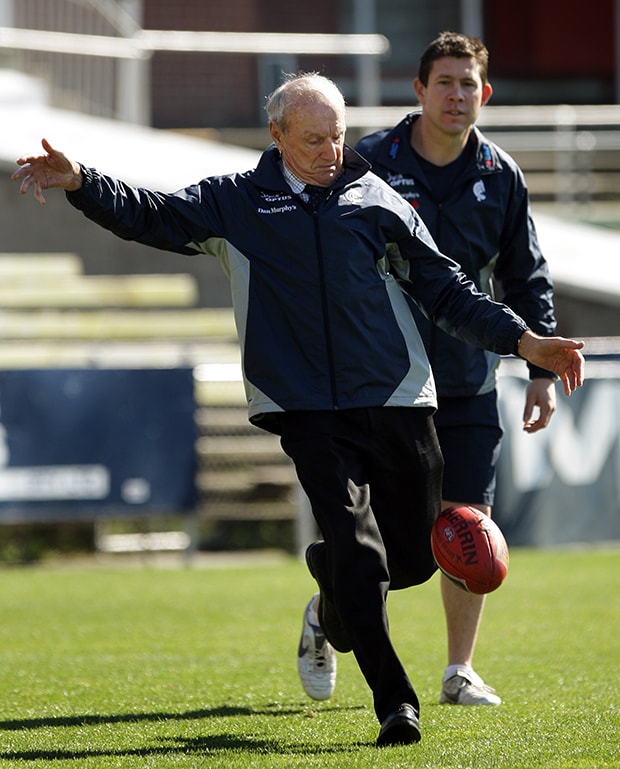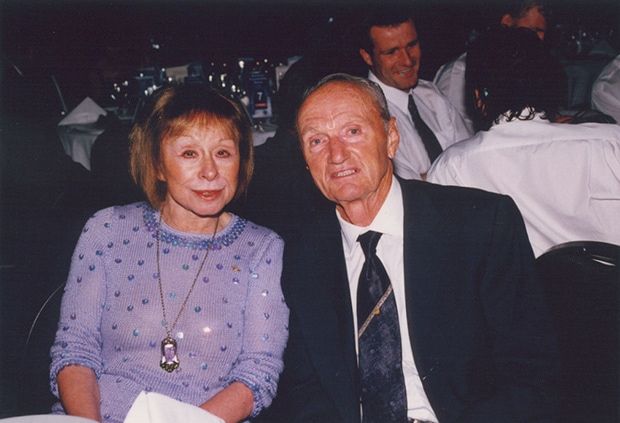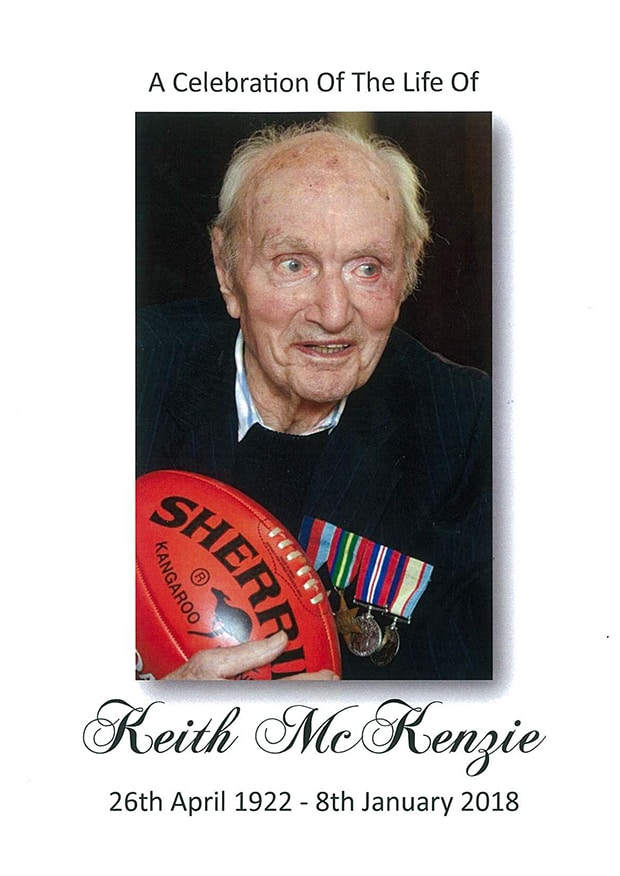MEMBERS of the true elite of Carlton’s four-decade premiership epoch were amongst the many football identities on hand for a celebration of the life of the club’s former assistant coach and general manager Keith McKenzie, who died recently at the age of 95.
The Sandringham Club served as the forum for the function, which was also patronised by a number of luminaries of the North Melbourne Football Club for which McKenzie played with such distinction through the 1940s and ’50s.
Included in the gathering were premiership players Barry Armstrong, Rod Austin, Bruce Doull, Craig Bradley, Mike Fitzpatrick, David Glascott, Peter Jones, Chris Judd, Stephen Kernahan, Mark Maclure, Andrew McKay, David McKay, John Nicholls, Bryan Quirk, Ken Sheldon and Sergio Silvagni.
Ron Barassi, a dual premiership coach with both Carlton and North Melbourne, was also in attendance, as were former North footballers Allen Aylett, Frank Good, Albert Mantello and Sam Kekovich, who acted as Master of Ceremonies.
The respective former Carlton and North chief executives Stephen Gough and Ron Joseph were also in attendance, together with Carlton’s current CEO Cain Liddle and football administration manager Shane O’Sullivan, whom McKenzie hired back in the premiership season of 1979.
Also there was former Carlton directors Peter Kerr and John Minuzzo, and long-serving sports reporters Greg Hobbs, Geoff Poulter and Mike Sheahan, together with St Kilda’s Brownlow Medallist Neil Roberts and South Melbourne’s triple Brownlow Medallist Bob Skilton.
A series of powerpoint images, which told the story of a long and deeply fulfilled life, appeared throughout the McKenzie celebration – those from Keith’s wartime days with the 74th Squadron, from his playing days at Arden Street, and from his days behind the desk at Princes Park, all juxtaposed against treasured photographs of his beloved wife of 67 years Joan and his children and grandchildren. The slide show ended with the words “the best in the caper” – a throwback to McKenzie’s nickname ‘Caper’, inherited at Carlton.

Keith McKenzie enjoys a friendly kick on the old stomping ground in 2008. (Photo: Carlton Football Club)
Perhaps Kekovich put it best in opening proceedings when he said: “Keith was a unique individual. He was small in stature, but a great, great man amongst all of us - a giant of a man”.
“He was the epitome of decency, grace, humility, decency, and all the other wonderful virtues you could thrust upon him,” Kekovich said.
“I don’t know if our maker ever put out a prototype of the perfect human being, but I reckon 'Macka' would have almost been that. He was an outstanding man. His life covered so many boundaries and transcended so many boundaries.”
Carlton Director Jeanne Pratt, who together with her late husband Richard was a close personal friend of McKenzie’s, talked of the man’s 30-year association with Visy, which began at Keith’s retirement age of 65 and lasted for the duration of his life.
“Macka showed us what it really means to be a people person,” Jeanne said. “That’s a phrase thrown around a bit loosely thesedays, but Macka was the real deal, the genuine article.
“He had a full and rewarding life, and he began a whole new chapter of it at 65 – an age when many retire from their jobs and too often from life.”

Jeanne Pratt with Keith McKenzie in 2001. (Photo: Carlton Football Club)
The audience also heard exceptional tributes paid by AFL Commissioner Gabrielle Trainor, whose grandfather Frank presided as North president through McKenzie’s playing days, along with McKenzie’s grandson James Magee and son Paul McKenzie.
A booklet, made available to those in attendance, detailed a series of McKenzie’s personal responses to questions recently put to him by family members about what was most important to him in life.

The cover of the booklet for McKenzie's funeral. (Photo: Supplied)
When asked what was most important to him, McKenzie replied: family, friends, being around people and teamwork . . . “and a hard handshake or a good hug”.
Also featured amongst the responses was McKenzie’s very personal philosophy he had carried for the best part of 95 years – to help people.


